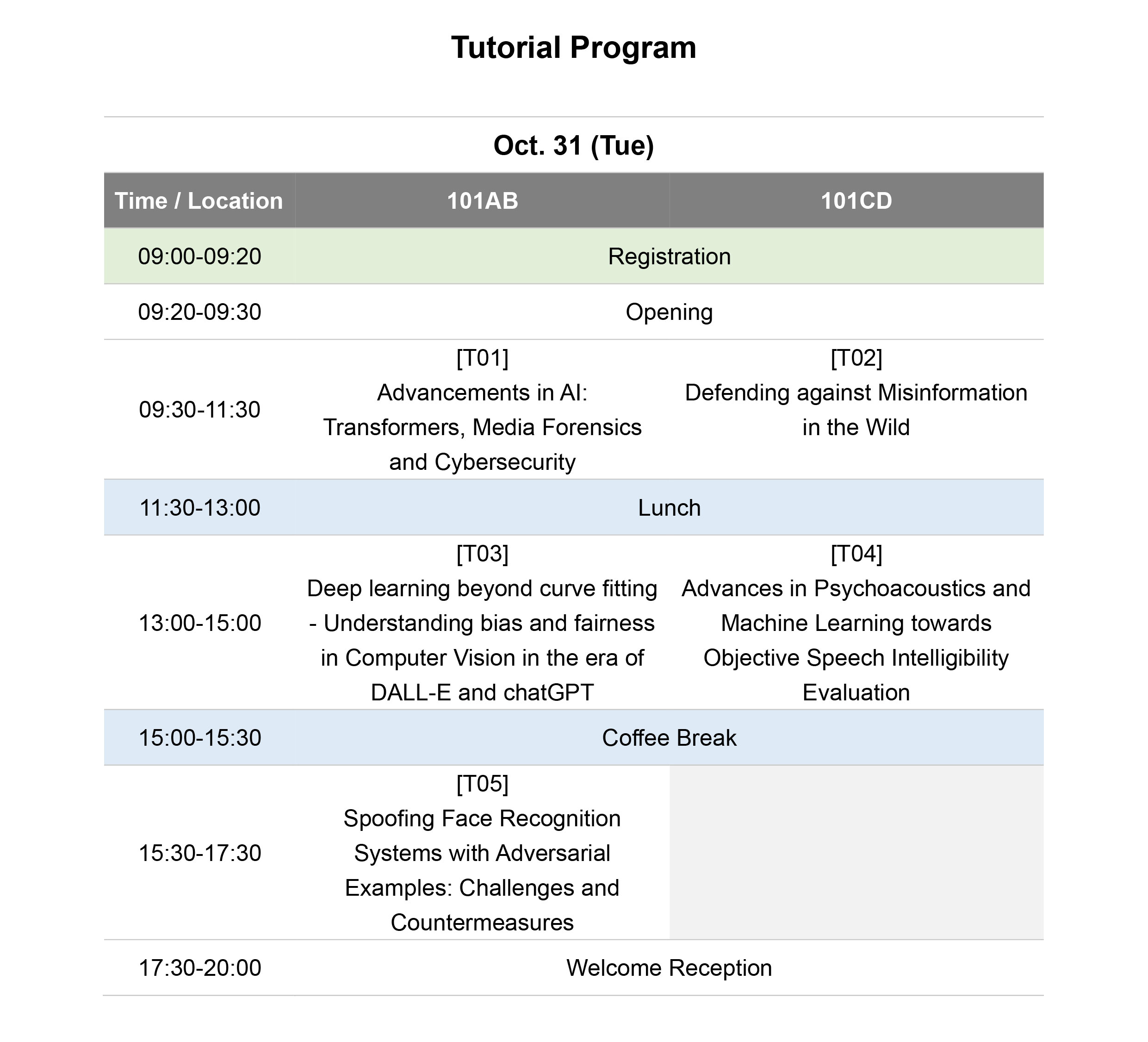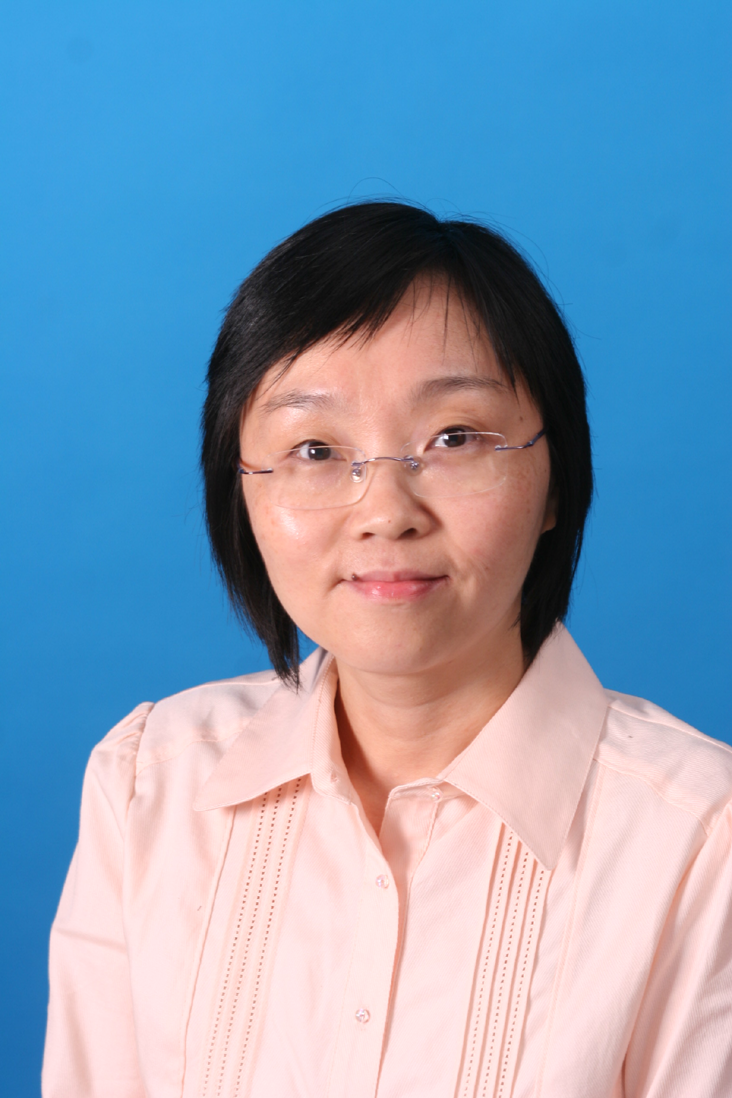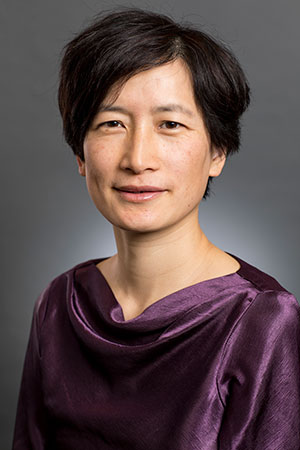WOMEN'S FORUM
12:00-13:30
November 2, 2023


Moderator
The Hong Kong Polytechnic UniversityBonnie N.F. Law
Dr. Bonnie N.F. Law received the BEng (Hons) degree with first-class honors from the University of Auckland, New Zealand, in 1993 and the Ph.D. degree from the University of Tasmania, Australia, in 1997. She is currently an associate professor in the Department of Electrical and Electronic, the Hong Kong Polytechnic University. Her research interests include signal and image processing, and machine learning. Recently, she has extended her study into various new applications, such as information security and bioinformatics. The former includes source camera identification and network traffic anomaly detection, while the latter involves gene expression and DNA sequence analysis. She has served as a committee member for many IEEE/APSIPA conferences, the technical committee member of APSIPA TC on Multimedia Security and Forensics.

Chiori Hori
Dr. Chiori Hori is a Senior Principal Research Scientist at Mitsubishi Electric Research Laboratories (MERL) in Cambridge, MA, where she has worked since 2015. Her research is focused on multimodal scene-aware interaction technologies for human-robot communications. Prior to MERL, she spent eight years at the National Institute of Information and Communication Technology (NICT) in Japan, and before that she was a researcher at Carnegie Mellon University (CMU) and NTT Communication Science Laboratories. At NICT, she was the director of the Spoken Language Communication Laboratory, where she led multiple projects in network-based speech translation systems for the international consortium U-STAR. Dr. Hori has received several awards, including the 24th TELECOM System Technology Award in 2009, the International Cooperation Award from ITU-AJ in 2012, the DOCOMO Mobile Science Award for Social Science Sector in 2012, and the 58th Maejima Hisoka Award in 2013. She served on the editorial board of the journal Computer Speech and Language, and she was a technical committee member of the Speech and Language Processing Group of the IEEE Signal Processing Society. She received her Ph.D. degree from the Tokyo Institute of Technology.

CHEN Cynthia
Cynthia Chen is a professor in the Department of Civil & Environmental Engineering at the University of Washington (Seattle). She is also a professor and the interim chair of the Department of Industrial & Systems Engineering at UW. She is an internationally renowned scholar in transportation science and directs the THINK (Transportation-Human Interaction and Network Knowledge) lab at the UW. Cynthia has published over 60 peer-reviewed publications in leading journals in transportation and systems engineering including Transportation Research Part A-F and Omega, as well as interdisciplinary journals such as PNAS. Her research has been supported by federal agencies such as NSF, NIH, APAR-E, NIST, USDOT, and FHWA as well as state and regional agencies. Cynthia served a two-year assignment (2017-19) as the Program Director of Civil Infrastructure Systems, CMMI (Civil, Mechanical, and Manufacturing Innovation) division with the National Science Foundation. She is an associate director of TOMNET (Center for Teaching Old Models New Tricks), a USDOT-funded Tier 1 University Transportation Center led by ASU, as well as a key member of the new Center of Understanding Future Travel Behavior and Demand, a USDOT-funded national center led by UT Austin. Currently, Cynthia serves as an associate editor for Transportation Science, and is on the editorial board of Sustainability Analytics and Modeling.

Simying Ong
Simying Ong is currently the Head of Department and a Senior Lecturer at the Faculty of Computer Science and Information Technology, Universiti Malaya, Malaysia. She was awarded with Bachelor Degree of Computer Science (Software Engineering) and Doctor of Philosophy (Information Security) in 2009 and 2015 by Universiti Malaya, Malaysia. Her research interests include image/signal processing and its related applications, information security (perceptual lightweight encryption and data hiding), and multimedia security usability.
She is actively involved in the reviewing activities in various conferences and journals including IEEE ICME, IEEE ICASSP, IEEE TCSVT, Elsevier JVCI. She was also awarded the Certificate of Excellence Service (by Universiti Malaya) 2022, IEEE SPS Malaysia Research Excellence Award 2021 - Best Conference Paper Award, IEEE ICME Outstanding Reviewers Award 2020-2021, etc.

TSAI Pei-Yun
Pei-Yun Tsai received the B.S., M.S., and Ph.D. degrees in electrical engineering from the National Taiwan University, Taipei, Taiwan. She is currently a Professor of Electrical
Engineering at the National Central University, Taoyuan, Taiwan. Her research interests include digital signal processing algorithms and VLSI design for wireless communication systems, radar systems, and biomedical systems.
Prof. Tsai was a member of the Design and Implementation of Signal Processing Systems (DISP) Technical Committee of the IEEE Signal Processing Society from 2015 to 2020, and in 2021, she was also a member of the Applied Signal Processing Systems (ASPS) Technical Committee of the IEEE
Signal Processing Society. Since 2019, she has been a member of the Circuits and Systems for Communications (CASCOM) Technical Committee of the IEEE Circuits and Systems Society. She has been technical committee member of Signal Processing Systems in Asia-Pacific Signal and Information Processing Association (APSIPA) from 2014. She received Future Tech Award and National Innovation Award in 2022.